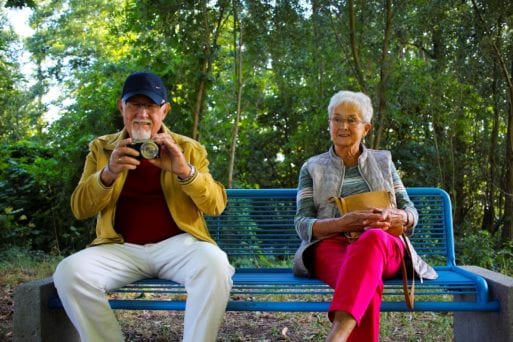
New studies within the field of psychology, known as mind-body studies, are focusing on the way internalized attitudes about aging impact people physically. At the same time, the World Health Organization is working on a global campaign to combat ageism focused on discrimination against people with older ages. This all follows a new focus on ageism, positive attitudes, and the impacts those have on our health.
Subliminal Exposure to Age-Positive Words
Psychologist Becca Levy, at the Yale School of Public Health, focused on the subliminal exposure to age-positive words and how that can improve the physical lives of older people. Many scientists believe that by changing the words we use and the outlook we have on aging, we can improve the health of the fastest-growing age group in the United States, people over 65.
Some of the negative age-related words that Levy used in her study include decline, dependent, dementia, and dying, while the positive ones included guidance, wise, insightful, and enlightened.
The study showed that with strengthened positive age stereotypes came a strengthened positive self-perception of aging. This improved the physical function of the individuals, showing that what the researchers termed the “implicit-positive-age-stereotypes intervention” yielded greater benefits in four weeks than a six-month exercise intervention.
These positive attitudes about aging have shown to improve older persons’ memory, gait, balance and speed. Positive health effects like these can, in turn, help decrease the $702 billion spent per year on Medicare, which is mostly utilized by the older population.

Negative Attitudes About Aging Might Lead to Serious Diseases
There have been some studies that suggest attitudes can play a role in the development of serious issues such as Alzheimer’s disease. This idea is supported by the research completed in the Baltimore Longitudinal Study on Aging and subsequent studies that used it. People who had negative views of aging had a greater buildup of amyloid plaques and neurofibrillary tangles, markers of Alzheimer’s, compared to those with positive attitudes.
Other Considerations
Some question whether there are other variables that can have an impact — such as an illness that causes negative attitudes. It could also be that the healthiest older people live the longest because they are healthy, and their good health provides them with a positive attitude about aging. This would mean that it isn’t the negative or positive stereotypes that impact health, but it is the health that impacts the outlook on aging.
As mind-body studies and attitudes about aging are increasingly researched we will know more. But regardless of whether or not attitudes play some role in health, one thing is certain: we should still rethink our negative stereotypes about aging.

 Positive Attitudes About Aging Can Impact Health
Positive Attitudes About Aging Can Impact Health


 How Dare You Die Now!
How Dare You Die Now!

 “Help Me, Helen”
“Help Me, Helen”














